Rebuilding life after a DUI can be a challenging journey, but it is not one that has to be navigated alone. Counseling programs play a crucial role in helping individuals recover from the aftermath of a DUI, offering support, guidance, and tools for personal growth and change. These programs are designed to address the underlying issues that may have contributed to the DUI incident, such as substance abuse, mental health challenges, or problematic behaviors. One of the primary benefits of counseling programs for DUI offenders is the opportunity for self-reflection and introspection. Through individual therapy sessions, participants can explore the factors that led to their DUI, identify triggers for risky behavior, and develop strategies for making positive changes in their lives. This process of self-discovery can be empowering, helping individuals to gain insight into their actions and motivations. Group counseling is another important component of DUI rehabilitation programs. In a group setting, participants have the chance to connect with others who are facing similar challenges.
This sense of camaraderie and shared experience can be incredibly supportive, reducing feelings of isolation and shame. Group counseling also provides a forum for practicing new communication and interpersonal skills, which are essential for building healthy relationships and avoiding future incidents. Education is a key focus of many DUI counseling programs. Participants learn about the risks associated with alcohol and drug use, and the legal consequences of driving under the influence. This knowledge is essential for making informed decisions and understanding the impact of their actions on themselves and others. Additionally, education about coping mechanisms, stress management techniques, and healthy lifestyle choices equips individuals with the tools they need to maintain sobriety and avoid relapse. Counseling programs for DUI offenders often incorporate specialized interventions tailored to the individual’s needs.
This may include cognitive-behavioral therapy CBT to address negative thought patterns and promote positive behavior change, motivational interviewing to enhance readiness for change, or family therapy to improve communication and support systems. By offering a range of therapeutic approaches, these programs can meet the diverse needs of participants and increase the likelihood of successful outcomes. A crucial aspect of Jackson Bibby alcohol education classes in Victorville DUI counseling programs is accountability and monitoring. Participants are typically required to adhere to a set of guidelines, such as attending regular counseling sessions, participating in support groups, and abstaining from alcohol and drug use. Regular progress assessments and drug testing may also be part of the program to ensure compliance and track improvement over time. counseling programs play a vital role in rebuilding life after a DUI by addressing underlying issues, providing support and education, and promoting personal growth and accountability. By actively engaging in these programs, individuals can make meaningful changes, restore their well-being, and move forward with a healthier, more positive outlook on life.


